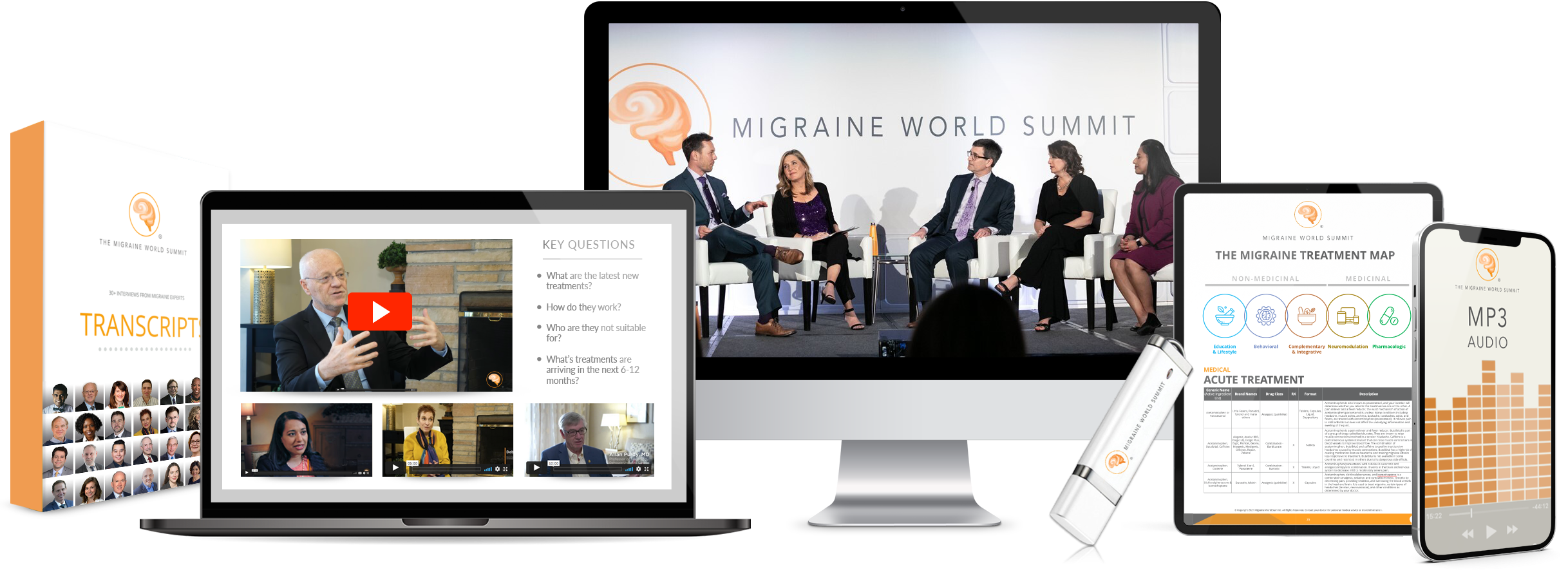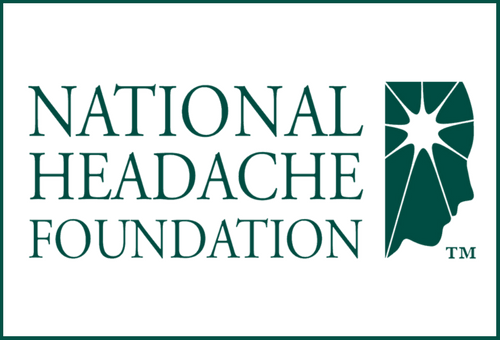The Latest Insights on CGRP-Targeted Medications in Migraine Treatment
You are currently watching a preview of this interview. Unlock the full version by upgrading to an Access Pass bundle! Get FREE access to 8 expert interviews from Day 1 and Day 2 when you register today!
Key Questions
- What are CGRP-targeted medications, and how do they help to treat migraine disease?
- Are CGRP medications effective for both acute and preventive migraine treatment?
- What is the American Headache Society’s position on CGRP-targeted medications?
- How long does it take for preventive CGRP medications to reach full effectiveness?
- If someone does not respond to one preventive CGRP medication, might another be effective?
- When is the best time to take a gepant for acute migraine treatment?
- Do CGRP medications help with migraine symptoms beyond headache?
- Do these treatments lose effectiveness over time?
- Are CGRP medications equally effective across different genders?
- Are CGRP medications contraindicated for individuals with hypertension, irritable bowel syndrome, gastrointestinal comorbidities, or Raynaud’s disease?
- Are CGRP medications safe and effective for older adults?
- Are researchers investigating other potential treatments for treating migraine disease?
Interview Notes
-
- Amaal J. Starling, MD
- American Headache Society (AHS)
- Article: “Calcitonin gene-related peptide-targeting therapies are a first-line option for the prevention of migraine: An American Headache Society position statement update”
- Article: “AHS Launches Position Statement About Integrating New Migraine Treatments into Clinical Practice”
- Article: “Teva Announces First Phase 3 Evidence of Efficacy and Safety of an Anti-CGRP Monoclonal Antibody in Children in AJOVY (fremanezumab) SPACE Trial for Prevention of Episodic Migraine”
- Study: “Effect of ubrogepant on patient-reported outcomes when administered during the migraine prodrome”
- Study: “Constipation as a possible predictor of poor treatment response in chronic migraine: A retrospective study of anti-calcitonin gene-related peptide (anti-CGRP) monoclonal antibodies and the impact of switching”
- Review Article: “Open-label trials for CGRP-targeted drugs in migraine prevention: A narrative review”
- Study: “Effectiveness, tolerability, and response predictors of preventive anti-CGRP mAbs for migraine in patients over 65 years old: A multicenter real-world case-control study”
- Study: “A phase 2, randomized, double-blind, placebo-controlled trial of AMG 301, a pituitary adenylate cyclase-activating polypeptide PAC1 receptor monoclonal antibody for migraine prevention”
Treatments Mentioned
- Amitriptyline
- Anticonvulsants
- Antidepressants
- Atogepant (Qulipta/Aquipta)
- Beta-blockers
- CGRP inhibitors
- CGRP monoclonal antibodies (mAbs)
- CGRP small-molecule receptor antagonists (gepants)
- Eptinezumab (Vyepti)
- Erenumab (Aimovig)
- Fremanezumab (Ajovy)
- Galcanezumab (Emgality)
- Rimegepant (Nurtec ODT/Vydura)
- Sumatriptan (Imitrex)
- Topiramate (Topamax)
- Triptans
- Ubrogepant (Ubrelvy)
Please note: The Migraine World Summit’s aim is to bring you a variety of perspectives and expertise, independent of bias or judgment. Alternative theories presented in this video have not been medically reviewed. Views expressed in this interview do not necessarily represent the views of the Migraine World Summit. Please always consult your health care professional and do your own research before making changes to your treatment plan.

Amaal J. Starling, MD, FAHS, FAAN
Neurologist
Mayo Clinic, Arizona
Dr. Amaal J. Starling is an associate professor of neurology at the Mayo Clinic College of Medicine. She joined the Mayo Clinic in 2012 and is currently a consultant within the Department of Neurology. Dr. Starling received her medical degree from the Drexel University College of Medicine in Philadelphia. She completed a transitional year residency, a neurology residency, and a headache fellowship at the Mayo Clinic College of Medicine in Scottsdale, Ariz.
Dr. Starling is an active member of numerous migraine advocacy organizations, including the American Headache Society (AHS), the American Migraine Foundation, and the American Academy of Neurology (AAN). She is also involved in events supporting migraine, including Headache on the Hill, Miles for Migraine, and the Alliance for Headache Disorders Advocacy. Dr. Starling is currently serving on the AHS Board of Directors and is the chair of the AHS Advocacy Committee and a member of the AHS Diversity, Equity, and Inclusion Taskforce. Dr. Starling has been the recipient of numerous awards, including the AHS Above and Beyond Award for Service, Manfred D. Muenter Award for Excellence in Clinical Neurology, the AAN Annual Meeting Residency Scholarship, the 2012 Spirit of Mayo Clinic Award, and the Mayo Brothers Distinguished Fellowship Award.
Dr. Starling has authored numerous peer-reviewed publications and abstracts related to her fields of interest, which include migraine, concussion, post-traumatic headache, neuromodulation, and telemedicine. Dr. Starling’s hope is that her research and advocacy will advance care for people with migraine, post-traumatic headache, and other headache disorders. She envisions a future in which all people with headache disorders receive personalized, effective, and well-tolerated treatment options to improve their quality of life.
Interviews from Amaal J. Starling, MD, FAHS, FAAN
SEEDS Natural Method for Migraine Control
Treatment Spotlight: Drug-Free Devices
When Nothing Works: Treatment-Resistant Chronic Migraine
How Can You Stand Up Against Migraine?

Get all the 2025 interviews, videos, audio, transcripts, and more. Why upgrade?
- Can’t attend live? Watch anytime
- Prefer reading or listening? Get transcripts and audio
- Want to dive deeper? Explore the additional footage & resources
- Need ongoing support? Reference expert advice year-round
- Lifetime access to 2025, no annual fee
Related Talks for: Day 1 (2025)
Paula’s Migraine Journey, Secrets & Next Steps
Paula K. Dumas
Migraine Relief Through Gut Health: Science & Solutions
Wade Cooper, DO
Managing the Unique Challenges of Vertigo & Vestibular Migraine
Shin C. Beh, MD
Over the past 50 years, our mission at the National Headache Foundation has been to further awareness of headache and migraine as legitimate neurobiological diseases. Much has changed during this time. With aid from advanced technology and clinical innovation, there are more treatment options than ever before. However, we understand that these diseases are still largely misunderstood and that finding the right treatment options for you requires insight.
Lundbeck is a global pharmaceutical company focused exclusively on transformative treatments in neuroscience for people with high unmet need. Every day, we strive for improved treatment and abetter life for people living with brain disease. We are committed to supporting the migraine community and helping to eliminate barriers that prevent people from being their best.

The Migraine World Summit starts today! Get a free text reminder so you don’t miss a moment. Sign up now to receive key updates during the event. Available in the U.S., Canada, U.K., and Australia—enter your mobile number now!







